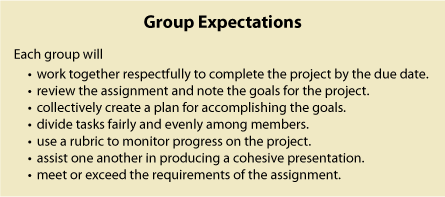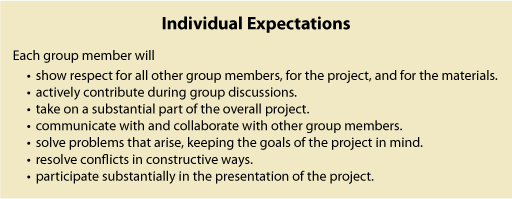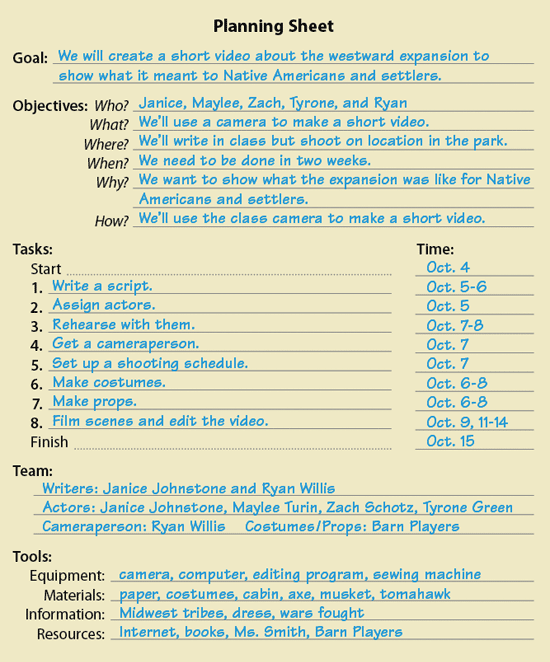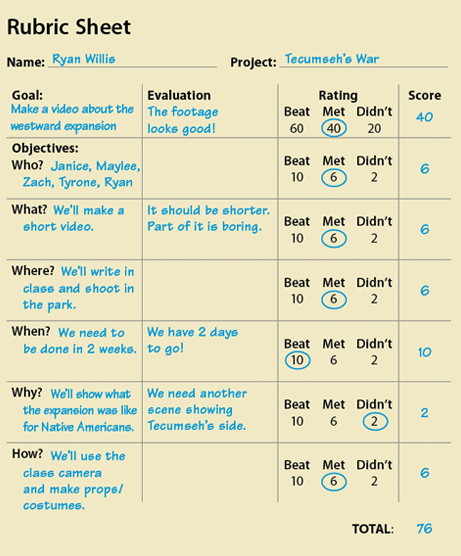5 Keys to Successful Student Collaborations
As you know, group work can give teachers headaches and students nightmares. If set up poorly, collaborative projects often result in one person doing all of the work, while others contribute minimally or actually disrupt. Arguments, inefficiency, mess, and chaos follow closely.
When set up well, though, group work taps into the power of collaboration. Here are 5 keys to setting up successful student collaborations.
- Define group success. The first key to successful student collaboration is to make sure the group members have a common goal. They need to work together to accomplish a specific task. They will either succeed together or fail together. For everyday collaborations, make your expectations clear verbally: "Turn to your partner, discuss page 63, and answer the questions together." For large-scale group assignments, write out what success will look like for each group:
- Define individual success. The whole group succeeds or fails together, yes, but you should also establish expectations for individual contributions. For quick collaborations, specify what individual success is: "Each person needs to contribute one answer, and each person will report a different person's answer to the whole class." For larger-scale collaborations, write out what you expect of each group member:

Download a free Word template.

Download a free Word template.
- Teach students how to plan. Help students learn that planning involves setting a goal, listing tasks that need to be done, scheduling tasks, dividing labor, and gathering tools. For small-scale collaborations, teach students to use your instructions to state their goal and list tasks: "All right, so we're supposed to write a summary of this page. First, we should all read it. Then we can write down the main details and decide on a summary statement. . . ." For large-scale collaborations, students will need to create a written plan:
- Teach students to self-evaluate. The group's plan helps the members stay on task. For everyday collaborations, teach students to focus on their goal, the tasks, and the time: "We have just three more minutes, and we still need to write a summary statement." For bigger collaborations, have the group use its plan to create a rubric for self-assessment. The goal and objectives from the planning sheet appear in the first column of a rubric sheet, allowing students to evaluate their work.
- Assess collaborative skills. When you assess group work, don't grade just the final product. Also grade the process that groups used to reach that outcome. Each of the expectations you established before the collaboration can play into assessment afterward. For everyday collaborations, give verbal praise or correction by reminding students of your expectations: "Remember, I said each person needed to contribute at least one answer. In your group, it seems like most of the answers were coming from Susan." For large-scale collaborations, include key expectations in your rubric.

See page 261 in Inquire: A Guide to 21st Century Learning.
Download a free planning sheet Word template.

See page 303 in Inquire: A Guide to 21st Century Learning.
Download a free rubric sheet Word template
Collaboration in Class and Beyond
We live in a web of collaboration. The simple act of getting into a car and driving to work requires not just your collaboration with other drivers, but also the collaboration of the people who built and sold the car and those who drilled and pumped and refined the gas, not to mention those who paved and maintained the road, and those who generated the electricity to run the traffic lights—and on and on. When human beings combine their labors, there is very little we cannot accomplish. Help your students learn to collaborate, and you will help all of us.
We want to hear from you! How does collaboration work in your classroom? What keys or tips can you share to help other teachers make student collaboration successful? Please enter your comments below.


Comments
wow
This is a great resource for
This is a great resource for teachers!
i agree!
I agree very much on this ! love it!
Post new comment